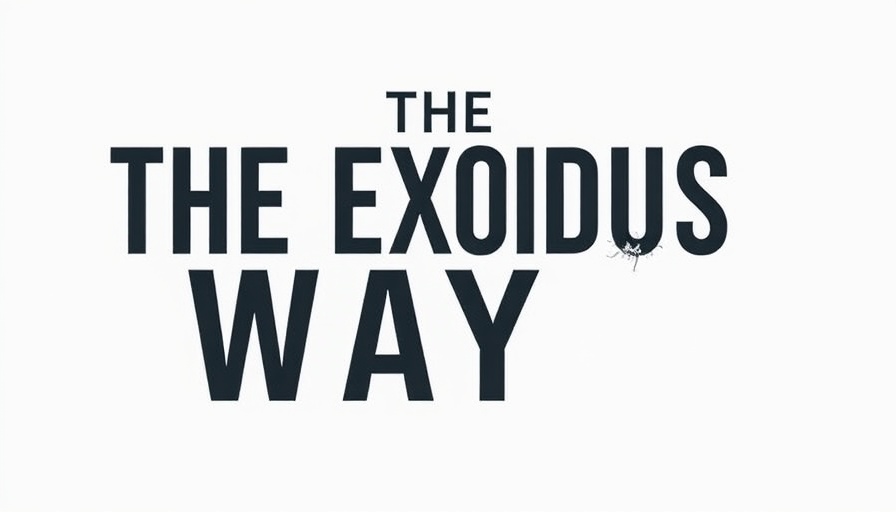
Understanding the Significance of Holy Week
As Christians around the world gather to observe Holy Week, a profound connection with the Jewish holiday of Passover emerges, uniting faith traditions through shared history and profound meaning. Holy Week commemorates the last days of Jesus, culminating in His resurrection, while Passover marks the liberation of the Israelites from slavery in Egypt. This dual observance encourages reflection on themes of redemption, sacrifice, and hope.
In 'Join Us on The Exodus Way,' the discussion dives into the significance of Holy Week and its connection with Passover, exploring key insights that sparked deeper analysis on our end.
Why Did Jesus Confront Religious Leaders During Passover?
This year, the timing of Jesus’ confrontation with the religious authorities during Passover takes on special importance. It was a conscious decision—one rooted in the rich narrative of the Exodus. By choosing this moment, Jesus aligned His mission with a powerful ancestral story, showing that His mission was about more than individual salvation; it was about the liberation of all people from spiritual bondage.
The Exodus: A Theme of Liberation
The story of the Exodus is a recurring motif throughout the Bible that emphasizes divine liberation. Just as God freed the Israelites from physical bondage in Egypt, so too does Jesus seek to liberate individuals from the constraints of sin. This parallel serves as a reminder that faith is not just about personal belief but also about collective redemption and social justice. As members of the Seventh-day Adventist faith community, understanding this pattern deepens our commitment to embodying love and justice in the world today.
Studies on Holy Week and Mental Health
Engaging in Holy Week observances can have a profound impact on mental health and well-being. Various studies indicate that spiritual practices around significant religious holidays encourage community bonding, enhance emotional resilience, and provide a sense of purpose. During Passover and Holy Week, prayer, reflection, and communal worship offer opportunities for personal growth and healing. These elements contribute to an overall sense of well-being that extends beyond the holiday itself.
The Call to Action: Embracing Liberation
As we ponder these themes and the example set by Jesus and the Exodus pattern, consider this call to action: engage actively in your community during this Holy Week and beyond. Seek opportunities to support those in need, offer kindness to strangers, and embody the principles of liberation in everyday actions. Each effort contributes to the larger tapestry of faith and love that defines our community.
Reflecting on the Past to Shape the Future
In sharing the narratives of the Exodus and Jesus' ministry, we gain insights not only into historical contexts but also into future implications for our lives and communities. The lessons drawn from these stories lead to a commitment—the commitment to be active participants in God’s redeeming work. Just as history has shown us the power of faith to transform lives, so too can we forge paths to brighter futures rooted in love and justice.
 Add Row
Add Row  Add
Add 




Write A Comment